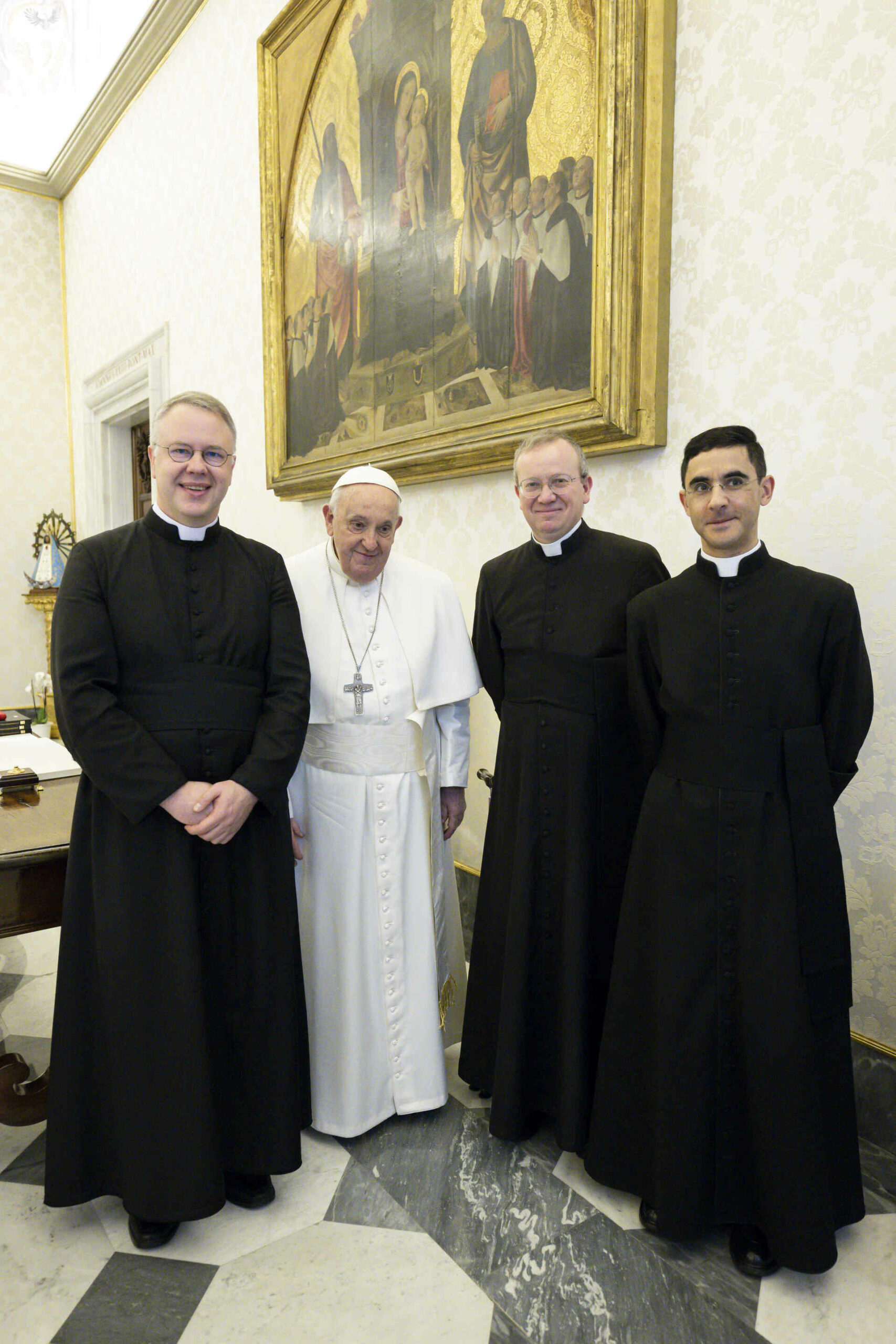The relationship between the Priestly Fraternity of St. Peter (FSSP) and Pope Francis has been a topic of significant interest within the Catholic Church. As a traditionalist group dedicated to preserving the Latin Mass, the FSSP plays a pivotal role in maintaining the liturgical heritage of the Church. This connection is particularly noteworthy given Pope Francis' Apostolic Letter Traditionis Custodes, which has reshaped the landscape for traditional liturgical practices. Understanding this dynamic requires examining both the historical context and the evolving policies under Pope Francis.
Pope Francis' leadership has brought about considerable changes within the Catholic Church, especially concerning the celebration of the Traditional Latin Mass. His issuance of Traditionis Custodes marked a turning point by redefining how traditional liturgies are practiced. However, his recent interactions with the FSSP indicate a nuanced approach towards traditionalism, balancing preservation with innovation. These developments highlight the ongoing dialogue between tradition and modernity within the Church, making it essential to explore how these collaborative efforts impact traditional Catholicism.
The journey of the FSSP within the Catholic Church reflects broader themes of continuity and change. Established in 1988, the FSSP emerged as a response to the need for priests trained in celebrating the Traditional Latin Mass while remaining fully integrated into the structures of the Church. Over time, their mission expanded beyond liturgy to include education and pastoral care rooted in traditional values. This evolution set the stage for complex interactions with papal authority, especially under Pope Francis who seeks to harmonize diverse expressions of faith under one ecclesiastical umbrella.
Exploring the Dynamics Between Tradition and Innovation
The Franciscan roller-coaster metaphor aptly describes the fluctuating dynamics within the Catholic Church regarding traditional practices. While the future remains uncertain, the present moment offers opportunities for growth and adaptation. The dramatic shift initiated by Pope Francis through Traditionis Custodes disrupted long-standing pastoral arrangements that had been in place for over a decade. This move challenged many traditionalists but also prompted deeper reflection on the essence of liturgical practice and its place within the broader mission of the Church.
In navigating these changes, communities embracing the Traditional Latin Mass must find ways to integrate their practices meaningfully into contemporary ecclesiastical life. This involves not only adhering to updated guidelines but also fostering an understanding of how traditional elements can enrich modern worship experiences. By doing so, they contribute positively to the Church's overall spiritual vitality rather than existing in isolation from it.
This period of adjustment calls for patience and openness from all parties involved. For the FSSP and similar groups, maintaining fidelity to their charism while aligning with current directives presents both challenges and possibilities. Their ability to demonstrate that traditional forms of worship enhance rather than detract from unity will be crucial moving forward. Thus, the interplay between respecting established customs and embracing necessary reforms becomes central to discussions surrounding the future of Catholic liturgy.
Affirmation Amidst Change: Strengthening Bonds
Pope Francis' meeting with the head of the FSSP underscored the importance of mutual respect and collaboration between different factions within the Church. During this encounter, he reaffirmed the FSSP's right to celebrate the Traditional Latin Mass using the liturgical books from 1962. Such gestures signal an acknowledgment of the value traditional rites bring to the spiritual lives of many Catholics worldwide.
By confirming the legitimacy of the FSSP's practices, Pope Francis reinforced the idea that diversity in liturgical expression enriches the Catholic experience. This affirmation does not imply endorsement of separatism; instead, it emphasizes inclusivity and appreciation for varied traditions within the universal Church. It serves as a reminder that unity does not necessitate uniformity but rather celebrates the multifaceted nature of Catholic spirituality.
Moreover, this interaction highlights the potential for constructive dialogue between traditionalist movements and progressive initiatives led by the Vatican. Encouraging open communication allows each side to learn from the other, leading to greater harmony and mutual enrichment. As such, these meetings become vital stepping stones toward building bridges across perceived divides within the Church.
Celebrating Heritage Through Official Recognition
The decree issued by Pope Francis officially recognizing the FSSP's continued use of the 1962 liturgical books represents a significant milestone in affirming their mission. Grateful responses from members of the Fraternity reflect deep appreciation for this gesture, which acknowledges their dedication to preserving sacred traditions. Such official recognition strengthens their position within the Church hierarchy while validating their contributions to liturgical heritage.
For parishes affiliated with the FSSP, this development provides assurance and stability amidst shifting ecclesiastical landscapes. It enables them to continue offering services that resonate deeply with congregants seeking authentic connections to past devotional practices. Furthermore, it empowers priests within the fraternity to minister effectively without fear of contradiction or restriction from higher authorities.
This decree also sets a precedent for future engagements between traditionalist groups and the Vatican administration. Demonstrating flexibility and willingness to accommodate legitimate requests fosters trust and cooperation among stakeholders invested in upholding cherished aspects of Catholic identity. Consequently, it enhances the Church's capacity to embrace its rich history while addressing contemporary needs responsibly.

